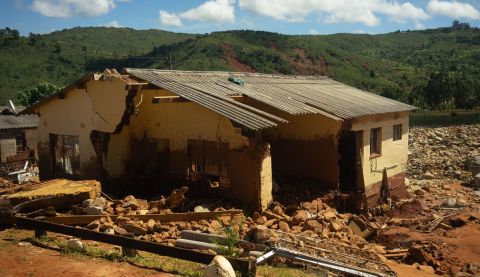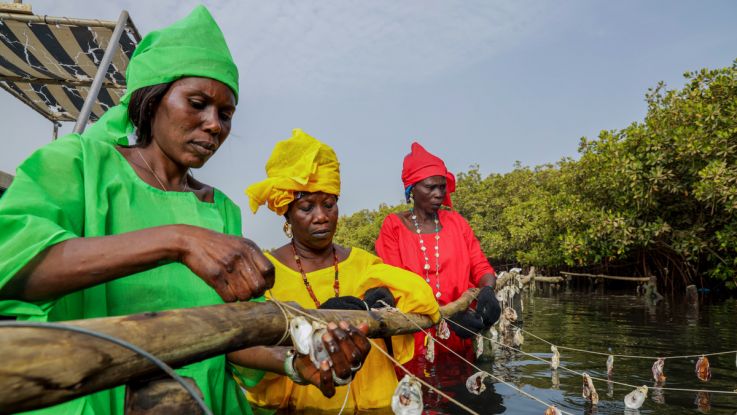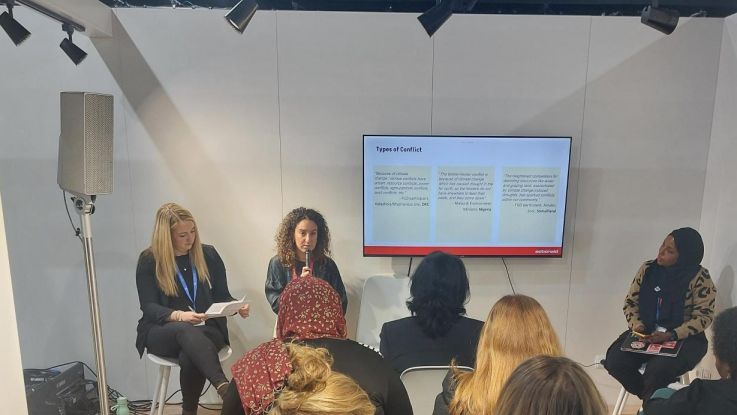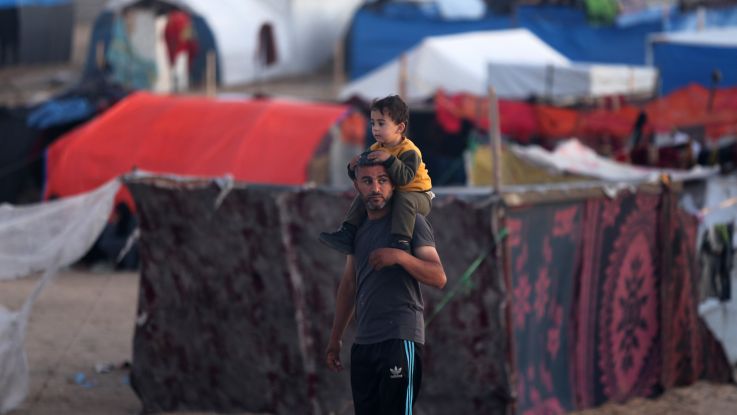Cyclone Idai one year on: what’s happening in Zimbabwe?
26 March 2020
One year on from the devastating Cyclone Idai of 2019, ActionAid's Arbie Baguios explains what's happening in Zimbabwe and the consequences still being felt across Southern Africa.

Cyclone Idai devastated parts of Zimbabwe. Photo: Zinyange Auntony/ActionAid
One year on from the devastating Cyclone Idai of March 2019, Zimbabwe is still reeling from its effects.
Arbie Baguios, of ActionAid's humanitarian team, recently returned from Zimbabwe. He explains the long-term consequences of the cyclone, its relationship with the ongoing food crisis, and concerns about the impact of Covid-19.
Q: One year on, what have been the long-term consequences of Cyclone Idai in Zimbabwe?
A: The effects of Cyclone Idai are still very much felt in Zimbabwe.
Many people are still living in temporary shelters and do not have access to basic services, families have not recovered their livelihoods, and women and girls remain in vulnerable situations.
There is however one positive, perhaps unexpected consequence to the cyclone.
ActionAid responds to disasters using its ‘humanitarian signature’ that focuses on women’s leadership, accountability, and shifting the power – all of these contributing to communities’ resilience.
Through this we have supported in the establishment of women-led committees in Chimanimani and Chipingge district.
Women are now more involved in their communities – the women’s meetings they regularly hold in women-friendly spaces are actually oversubscribed! Through these they get to discuss the issues they want, and also able to participate in community decision-making.
Q: What has ActionAid done to help people affected by the cyclone?
A: Apart from establishing women-led committees and building women-friendly spaces, we’ve also distributed food, provided shelters, supported families to restart and improve their livelihoods, and helped build and repair latrines and classrooms in schools.
We've also promoted good hygiene and health practices to prevent diseases, and raised awareness on disasters so that people are more prepared when they happen in the future.
Q: What about the impact of Covid-19?
A: So far the Coronavirus has not had a significant impact on Southern Africa, but unfortunately it is likely to reach the affected countries in the near future, now that the World Health Organisation has confirmed that the situation is a pandemic.
The impact of the virus is likely to be more severe on people who are already weakened by poor nutrition and by the additional vulnerabilities arising from the climate crisis. Health systems in these countries may not be well-equipped to cope.
The global situation therefore heightens the urgency of supporting people affected by the food crisis, as well as engaging in the global response.
In addition, the Coronavirus is likely to indirectly impact the response to the food crisis as media coverage and public awareness are occupied with news of the virus and financial markets are disrupted.
Q: How have women and girls been affected by Cyclone Idai?
A: Women and girls are often the most vulnerable in disasters like this.
Living in temporary camps and with no access to basic services mean they are more exposed to exploitation and abuse.
Loss of livelihoods sometimes mean women travelling far distances, which can be unsafe, to provide for their family.
This also means they may have a hard time balancing responsibilities within the household, including caring responsibilities. And in times of need, it is not uncommon to see a rise in child marriages.
Q: How has the cyclone contributed to the food crisis we’re seeing now?
A: The cyclone has left families more vulnerable, which means they’re in a worse position now that there is a food crisis.
It will be harder for them to find food to feed their families, and also harder to recover their livelihoods.
Q: How are people feeling in Zimbabwe at the moment?
A: People are well aware of the situation, and you can sense that everyone is worried.
But the Zimbabwean women within the women-led committees who I spoke to are resilient!
While I was there, I saw how they led a needs assessment to find out what the needs of their communities are 12 months after the cyclone has passed, and now with the new food security crisis.
They are dedicated and are passionate advocates for their communities!
How you can help
One year on, the impact of Cyclone Idai is still being acutely felt by people across Zimbabwe and Southern Africa, with at least nine million people at risk of food shortages.
A gift of just £30 could provide food for a family of five for two weeks.



